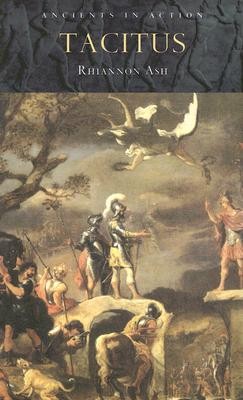| Tacitus Contributor(s): Ash, Rhiannon (Author) |
|
 |
ISBN: 1853996874 ISBN-13: 9781853996870 Publisher: Bristol Classical Press OUR PRICE: $32.62 Product Type: Paperback - Other Formats Published: January 2007 Annotation: Tacitus is arguably the most significant writer of the Roman imperial period. His biting creativity is best known to us through his historical narratives. The Histories ruthlessly depicts the disastrous civil wars which exploded in AD 68-9, while the Annals chillingly documents the murky principles of the Julio-Claudian emperors from Tiberius to Nero. Tacitus is driven throughout by a desire to reveal escalating corruption and selfish ambitions and to demonstrate how and why such a debased world evolved after the death of Augustus. This book sets Tacitus clearly in context, surveying all his works and clarifying the traditions of ancient writing that informed and shaped his narratives. It also traces how his works have been used and abused in subsequent eras. |
| Additional Information |
| BISAC Categories: - Language Arts & Disciplines - Literary Collections | Ancient, Classical & Medieval - Literary Criticism | Ancient And Classical |
| Series: Ancients in Action |
| Physical Information: 0.49" H x 5.79" W x 8.51" (0.44 lbs) 144 pages |
| Themes: - Chronological Period - Ancient (To 499 A.D.) |
| Descriptions, Reviews, Etc. |
| Publisher Description: This series of short incisive books introduces major figures of the ancient world to the modern general reader, including the essentials of each subject's life, works, and significance for later western civilisation. Tacitus is arguably the most significant writer of the Roman imperial period. His biting creativity is best known to us through his historical narratives. The Histories ruthlessly depicts the disastrous civil wars which exploded in AD 68-9, while the Annals chillingly documents the murky principates of the Julio-Claudian emperors from Tiberius to Nero. Tacitus is driven throughout by a desire to reveal escalating corruption and selfish ambitions and to demonstrate how and why such a debased world evolved after the death of Augustus. This book sets Tacitus clearly in context, surveying all his works and clarifying the traditions of ancient writing that informed and shaped his narratives. It also traces how his works have been used and abused in subsequent eras. |